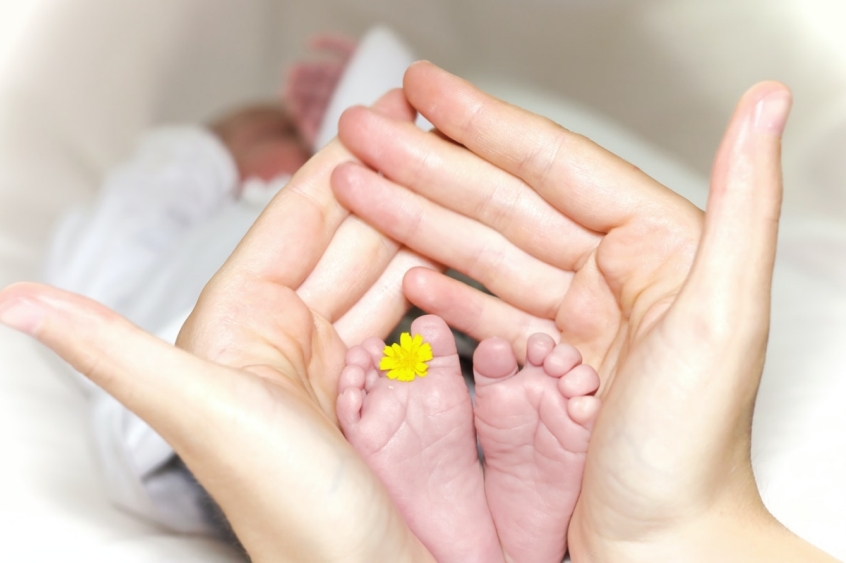
"Never believe something until it's been officially denied", journalist Claud Cockburn once recalled. This cynical advice resonates with many of us, especially in times of crisis but also in apparently smoother waters.
When it comes to research, especially as interpreted in the media and by interested parties, we need to be careful when reading absolute statements which may not be justified by the data alone. This is especially true when it comes to morally and politically sensitive areas. And there are few more sensitive areas than abortion and infertility.
Last week we heard from Jessica Zucker, a psychologist writing in the Daily Telegraph, who claimed that "Studies have shown that abortion does not negatively impact a person's fertility" and that it is not "the cause of a future pregnancy loss." Similarly, in Forbes magazine Alice Broster wrote recently that "Misconceptions attached to abortion procedures aren't only really damaging, they build on stigma and a culture of silence. There's no proof that your fertility will be affected if you have a safe abortion and some more routine procedures have even more risks attached." The articles cite respectively the French and the American Colleges of Obstetricians and Gynecologists to support these claims.
So can we confidently accept that abortion carries no risk to fertility? Not according to the medical researcher (and Bios Centre Fellow) Dr Greg Pike, who published a paper on this issue recently in the peer-reviewed journal Issues in Law and Medicine. The conclusion of the paper is that:
"there is sufficient evidence to suggest that there is a link between abortion and infertility that warrants more thorough investigation, and that infertility from abortion is not a rare phenomenon. It could well be in the vicinity of several percent, which, given the huge numbers of women who have had abortions, represents a large impact."
Given the need for patients to have full information when it comes to proposed procedures, it is worrying that when it comes to a matter as serious as future fertility, articles appear in the mainstream press which simply take it as a given that there is "nothing to see here". Many women considering an abortion will read such articles, or similarly reassuring statements on abortion clinic websites, and not unreasonably conclude that no relationship exists between abortion and future fertility.
Yet the paper mentioned tells a rather different story. It shows that from the late 70's and 80's a series of studies on the possible effects of abortion on women's fertility, combined with the confidence of some reviewers who believed that abortion did not affect subsequent fertility was sufficient to create acceptance of the idea that there really was nothing to see here. That idea persists and can be seen in the advice given out by abortion providers and governmental organisations. But as the paper shows, even those early studies showed cause for concern and more recent studies have only increased the evidence suggesting that, at the very least, more investigation is needed.
And we are here talking about abortions causing infertility, not merely being associated with it. As the paper points out,
"That a causative link is likely is given greater strength by existing knowledge of the mechanisms by which causation could occur. Cervical or endometrial damage, infection and PID [pelvic inflammatory disease], incomplete abortion, IUAs [intrauterine adhesions], and mental health problems like anxiety and PTSD, are all sequelae of abortion. And most of these are also known to cause infertility. Hence, it should logically be expected that infertility will be caused by abortion."
Whatever one's view of the rights and wrongs of abortion, it should be a matter of concern to all that in these deeply private areas bland reassurances are given concerning one of the most commonly performed procedures on women which can affect significant numbers of women in an aspect of their health which is an important feature of who they perceive themselves to be.
When incentives and/or ideologies obscure the primary purpose of medicine in the healing of patients there is cause for us to question what is being put out to the public. What are presented as authoritative and expert views are, in fact, at odds with some available evidence and when that evidence is not aired as prominently as mollifying reassurances, we know that the patient is not being put first.
There are those who have argued, as has Dame Lesley Regan, former president of the Royal College of Obstetricians and Gynaecologists, that women's reproductive healthcare should be at the forefront of our healthcare practices, not least because social stigma needs to be removed from this area. Yet by effectively ignoring evidence that may be inconvenient to abortion providers, to the detriment of women's real health interests, how can the body she represented for so long claim to be adhering to person-centred medicine?
As the paper in Issues in Law and Medicine concludes,
"These and other issues mean that a significant question mark still hangs over to what extent abortion is a risk factor for infertility. And for something as important to women and their partners as fertility, it is completely unsatisfactory that the current state of evidence remains unsettled. Even so, the evidence that does exist suggests that bland assurances that abortion is safe, even from causing long term problems like infertility, are unsustainable."
Dr Anthony McCarthy is Director of the Bios Centre in London, a research institute dedicted to the critical examination of current practices in health care, as well as societal attitudes to ethical issues ranging from reproductive ethics to end-of-life care.













